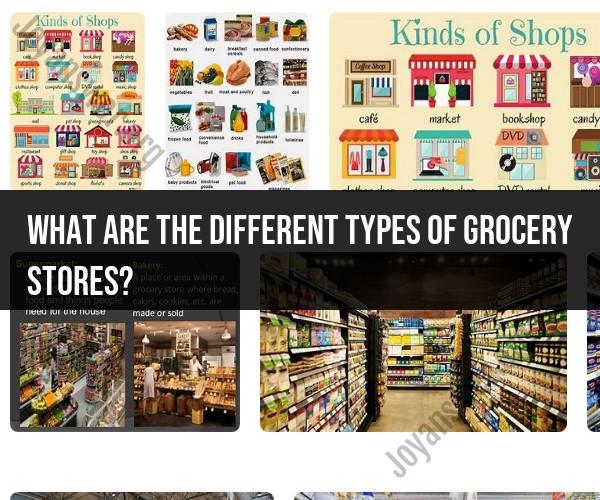What are the different types of grocery stores?
There are several types of grocery stores, each catering to different customer needs and preferences. Here are some of the common types of grocery stores:
Supermarkets: Supermarkets are large, full-service grocery stores that offer a wide variety of products, including fresh produce, meat, dairy, bakery items, canned goods, and household products. They often have multiple aisles and departments, making them one-stop shops for groceries.
Hypermarkets: Hypermarkets are even larger than supermarkets and typically include a broader range of non-grocery items, such as clothing, electronics, and household goods. They combine a supermarket and a department store under one roof.
Discount Grocery Stores: Discount grocery stores, also known as discounters or no-frills stores, focus on offering lower prices by minimizing overhead costs. They often have a limited selection of products and may not provide services like deli counters or bakeries.
Warehouse Clubs: Warehouse clubs are membership-based stores that sell groceries and a variety of other products in bulk quantities. Customers pay an annual fee to access the store's discounts. Popular examples include Costco and Sam's Club.
Convenience Stores: Convenience stores, or "c-stores," are small, neighborhood stores that provide a limited selection of essential items, including snacks, beverages, and ready-to-eat meals. They are known for their convenience and extended operating hours.
Specialty Grocery Stores: Specialty stores focus on specific types of products or cuisines. Examples include:
- Organic Grocery Stores: These stores specialize in organic and natural products.
- Ethnic Grocery Stores: These stores cater to specific cuisines, offering ingredients and products from particular regions or countries.
- Health Food Stores: Health food stores emphasize products focused on nutrition and wellness.
- Gourmet Grocery Stores: Gourmet stores offer high-quality, often artisanal, foods and ingredients.
Online Grocery Stores: With the rise of e-commerce, online grocery stores have become increasingly popular. Customers can order groceries online and have them delivered to their homes. Major retailers and grocery chains offer online shopping and delivery services.
Fresh Food Markets: Fresh food markets, such as farmers' markets and open-air markets, provide fresh produce, meat, dairy, and other locally sourced items. They often operate seasonally and offer products directly from local farmers and artisans.
Cooperative Grocery Stores: Cooperative stores are owned and operated by their members, who often share in the decision-making and profits. They may prioritize sustainable and ethical sourcing.
Dollar Stores: Dollar stores sell a variety of products, including groceries, at low prices. They are known for their value-oriented approach and may carry smaller or off-brand items.
Pharmacy Stores: Many pharmacies, such as CVS and Walgreens, also offer a selection of groceries and household products in addition to their primary focus on prescription medications and healthcare items.
Small Independent Grocers: These are typically locally owned and operated grocery stores that may emphasize personalized service, unique product offerings, and a sense of community.
The type of grocery store you choose often depends on factors like convenience, budget, dietary preferences, and specific product needs. Additionally, many consumers shop at a combination of these store types to meet their diverse shopping requirements.










